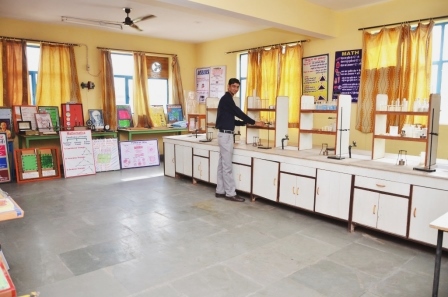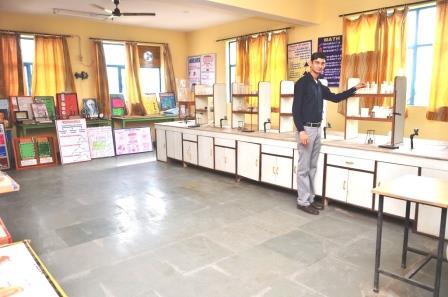Maths Lab: It is a unique room or place, with relevant and up-to-date equipment known as instructional materials, designated for the teaching and learning of mathematics and other scientific or research work, whereby professionally qualified Lecturer readily interact with the students on specified set of instructions. To an approach to teaching and learning of mathematics which provides opportunity to the learners to abstract mathematical ideas through their own experiences, that is to relate symbol to realities. The functions of mathematics laboratory include the followings:
- Arousing interest and motivating learning.
- Cultivating favourable attitudes towards mathematics.
- Enriching and varying instructions.
- Encouraging and developing creative problems solving ability.
- Allowing for individual differences in manner and speed at which students learn.
- Making students to see the origin of mathematical ideas and participating in “mathematics in the making”.
Science Lab: This helps the student to develop a broad array of basic skills and tools of experimental physics and data analysis. It helps the students to understand the role of direct observation in physics and to distinguish between inferences based on theory and the outcomes of experiments and develop collaborative learning skills that are vital to success in many lifelong endeavours. It gives the student an appreciation of the way chemistry, as a science, works. Above all, the aims offer possibilities where the student learner can be challenged to think, to argue, to weigh evidence, to explore chemical ideas. There is an opportunity to make chemistry real, to illustrate ideas and concepts, to expose theoretical ideas to empirical testing, to teach new chemistry and as a source of evidence in enquiry and to learn how to devise experiments which offer genuine insights into chemical phenomena. It helps to learn the skills of observation and the skills of deduction and interpretation. The Intellectual stimulation is connections with the ‘real world’, raising enthusiasm for chemistry.

